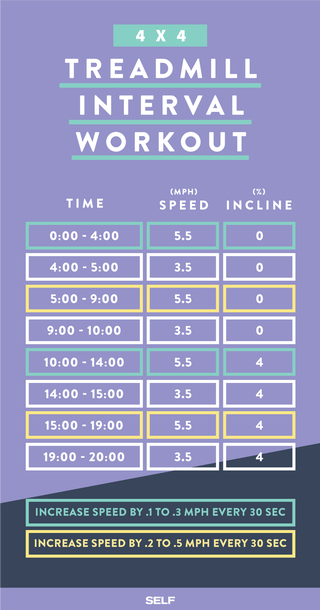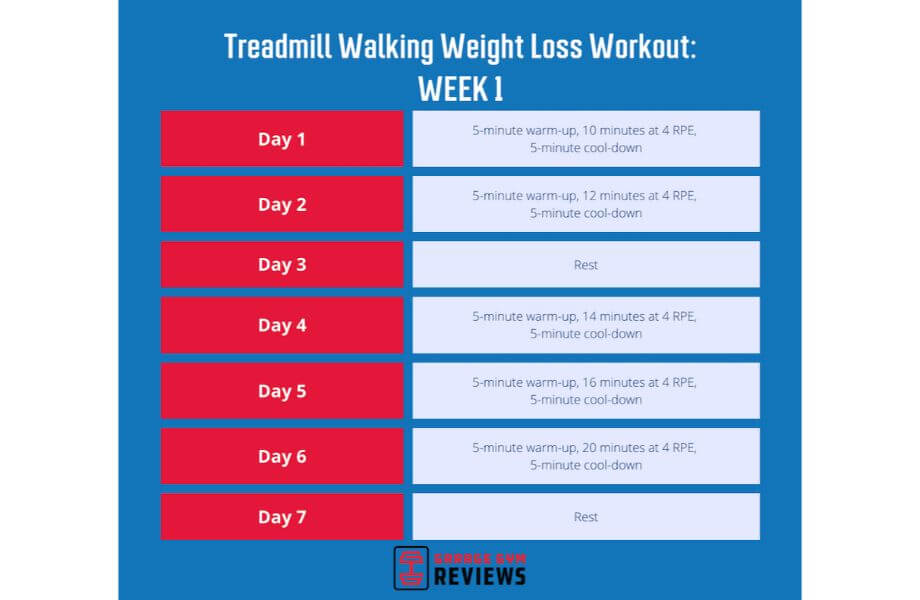Are you tired of spending countless hours in the gym, trying to shed those extra pounds? Well, fret no more because we have the solution for you! In this article, we will explore the ideal walking speed on a treadmill that can help you achieve your weight loss goals. walking on a treadmill is a fantastic way to burn calories, but it’s important to find the right balance between pushing yourself and avoiding injury. So, if you’re ready to take your fitness journey to the next level, let’s find out what speed will bring you one step closer to your weight loss dreams.
Factors to Consider
When it comes to walking on a treadmill to lose weight, there are several factors that you need to take into consideration. Understanding these factors will not only help you determine the most effective speed for your weight loss goals but also help enhance your overall fitness journey.
Fitness Level
Consider your current fitness level before setting a speed on the treadmill. If you’re just starting out and have a low fitness level, you may want to begin with a slower speed to avoid potential injuries and allow your body to gradually adapt to the exercise. On the other hand, if you’re already an avid walker or have been engaging in regular physical activity, you can aim for a higher speed to challenge yourself and push your limits.
Health Conditions
It’s important to consider any underlying health conditions you may have before determining your treadmill speed for weight loss. Certain conditions, such as cardiovascular issues or joint problems, may require you to start at a slower pace or consult with a healthcare professional before undertaking any vigorous exercise. Always prioritize your health and well-being when embarking on a fitness journey.
Weight Loss Goals
Your weight loss goals will ultimately determine the intensity and duration of your treadmill workouts. If you’re aiming for significant weight loss, you may want to increase your speed and duration gradually to burn more calories. However, if your goal is to maintain your current weight or improve overall fitness without focusing solely on weight loss, you can adjust your speed accordingly.
Moderate Intensity Speed
Moderate intensity speed on a treadmill can be an effective way to burn calories and improve cardiovascular health. Walking at a moderate pace keeps your heart rate elevated and promotes fat burning while minimizing the risk of injury.
Benefits of Moderate Intensity Speed
Walking at a moderate intensity speed has numerous benefits. Not only does it help you burn calories, but it also strengthens your heart and lungs, improves circulation, and boosts your mood. Additionally, this speed is suitable for individuals of various fitness levels, making it accessible to a wide range of people.
Recommended Speed Range
To engage in moderate intensity speed walking on a treadmill, aim for a speed range of approximately 3.5 to 4.5 miles per hour. However, keep in mind that individual fitness levels and preferences may vary. It’s essential to listen to your body and find the pace that feels challenging yet sustainable for you.
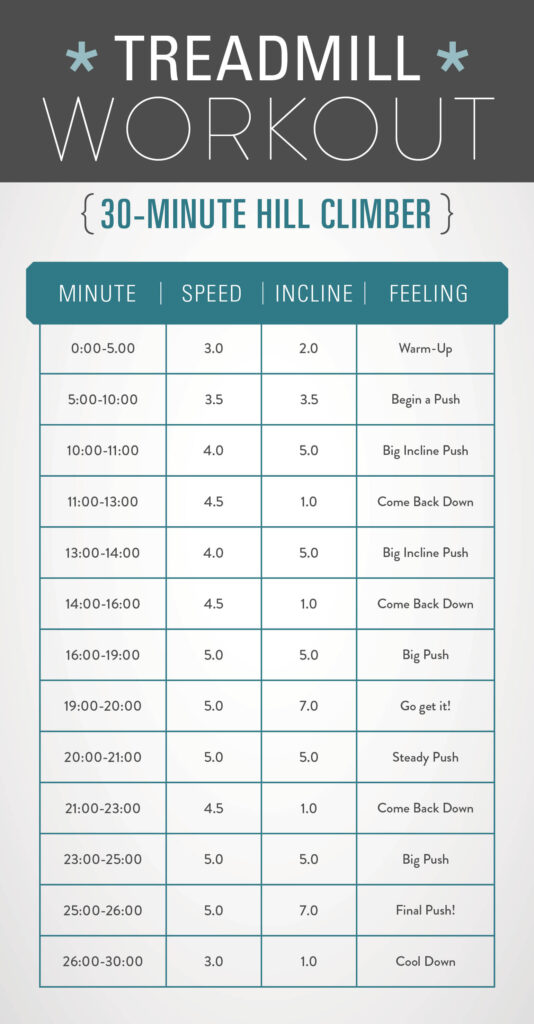
High Intensity Interval Training
High Intensity Interval Training (HIIT) is a popular and effective method for burning calories and improving overall fitness. Incorporating intervals of high-intensity speed into your treadmill workouts can help maximize weight loss and improve cardiovascular endurance.
Benefits of HIIT
HIIT offers numerous benefits for weight loss. It increases your metabolic rate, leading to greater calorie burn even after your workout has ended. Additionally, HIIT helps build lean muscle mass, improves aerobic capacity, and enhances overall cardiovascular health.
Recommended Interval Speeds
When incorporating high-intensity intervals on a treadmill, you should aim for speeds that challenge your cardiovascular system and push your limits. For the high-intensity intervals, consider setting your speed around 7 to 9 miles per hour, or whatever feels challenging but still manageable for you. During the recovery intervals, slower speeds around 3 to 4 miles per hour can be effective.
Incline Walking
Walking on an incline on the treadmill adds an extra challenge to your workouts and can help you burn more calories. Incorporating incline walking into your routine can target different muscle groups and increase the intensity of your workouts.
Advantages of Incline Walking
Incline walking offers various advantages. It engages your glutes, hamstrings, and calves more effectively than walking on a flat surface, helping to tone and strengthen your lower body. Additionally, incline walking also increases the intensity of your workout, leading to higher calorie burn and improved cardiovascular fitness.
Ideal Incline Levels
When it comes to incline walking, it’s important to find the right balance. Aim for an incline level of around 3% to 5% to effectively engage your muscles and elevate your heart rate. However, as with any exercise, individual ability and comfort should be taken into consideration. Adjust the incline level to suit your fitness level and avoid excessive strain on your joints.
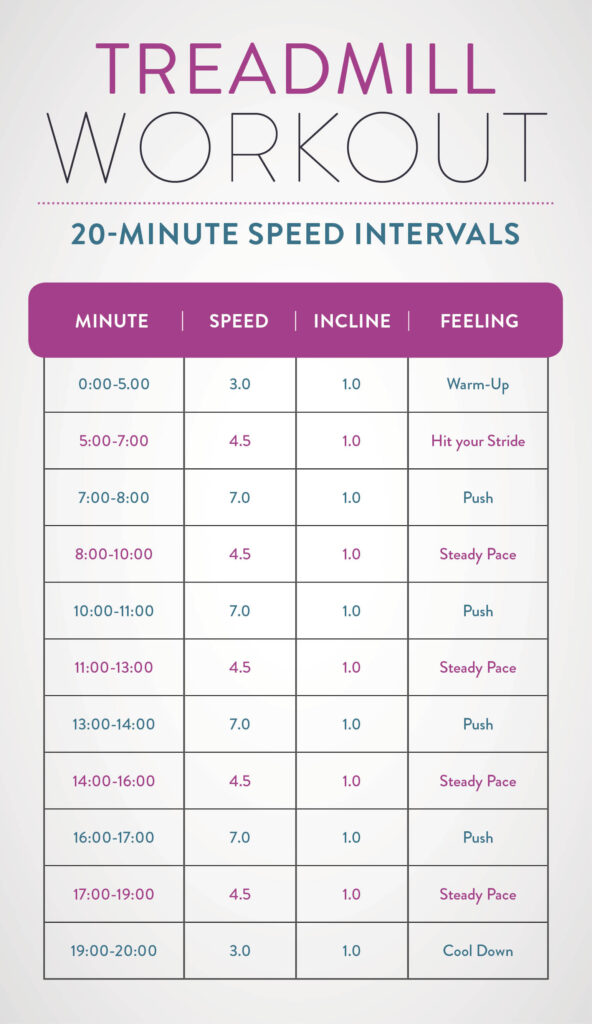
Multiple Speed Techniques
Utilizing multiple speed techniques in your treadmill workouts can help prevent plateaus and keep your exercise routine engaging and challenging. Here are two popular speed techniques to consider incorporating into your workouts.
Progressive Speed Training
Progressive speed training involves gradually increasing your speed over time. By continually challenging your body with faster speeds, you can improve your cardiovascular endurance, burn more calories, and achieve better weight loss results. Begin with a comfortable pace and gradually increase your speed in small increments every week or two, allowing your body to adapt to the changes.
Speed Variations
Another effective way to keep your treadmill workouts interesting and effective is by incorporating speed variations. Alternating between faster and slower speeds throughout your workout not only challenges your cardiovascular system but also adds variety to your routine. This can help prevent boredom and increase your overall enjoyment of the workout.
Monitoring Heart Rate
Monitoring your heart rate during treadmill workouts is a valuable tool to ensure you’re exercising at the right intensity for optimal weight loss. By keeping your heart rate within a target range, you can maximize calorie burn and ensure that you’re pushing yourself enough without overexerting.
Importance of Heart Rate Monitoring
Heart rate monitoring allows you to gauge the intensity of your exercise and make adjustments as needed. By staying within your target heart rate range, you can ensure that you’re working at an intensity that promotes weight loss and improves cardiovascular health. It also helps prevent the risk of straining yourself or not pushing hard enough.
Target Heart Rate Range
To calculate your target heart rate range, subtract your age from 220 and then multiply the result by the desired intensity level (usually between 60% to 80%). This will give you the range within which your heart rate should ideally be during your treadmill workouts. By monitoring your heart rate and aiming to stay within this range, you can ensure you’re exerting yourself at an appropriate level.

Preventing Injury
When engaging in any exercise routine, prioritizing injury prevention is crucial for your overall health and well-being. Taking the necessary steps to warm up properly, cool down after each workout, and wear appropriate footwear will help reduce the risk of injuries.
Proper Warm Up and Cool Down
Before starting any intense treadmill workout, it’s essential to warm up your muscles and prepare your body for exercise. Engage in five to ten minutes of light cardio, such as walking at a slower speed, to increase blood flow and loosen up your muscles. Similarly, after your workout, incorporate a cool-down period of five to ten minutes to gradually lower your heart rate and stretch your muscles. This will help prevent muscle soreness and reduce the chance of injury.
Appropriate Footwear
Investing in proper footwear is crucial for the comfort and safety of your treadmill workouts. Look for athletic shoes that provide adequate support, cushioning, and stability for your feet and ankles. Ill-fitting or worn-out shoes can lead to discomfort, foot pain, and even potential injuries. Take the time to find the right shoes for your feet to ensure a comfortable and injury-free exercise experience.
Personal Preferences
Enjoying your workouts and finding variety in your exercise routine can greatly enhance your motivation and keep you committed to your weight loss goals. Consider your personal preferences to make your treadmill workouts more enjoyable and sustainable.
Enjoyment Factors
Think about the aspects that you enjoy in an exercise routine. Do you prefer listening to music or podcasts while walking? Maybe watching your favorite TV show helps the time pass quickly. Find activities or distractions that make your treadmill workouts more entertaining, as this will help you stay engaged and motivated to continue.
Variety in Workouts
If you find yourself getting bored with your treadmill workouts, adding variety can make a significant difference. Mix up your routine by incorporating different speed intervals, incline levels, or even alternating between walking and jogging. Try new workout programs, experiment with different audio or visual distractions, or even take your treadmill workout outdoors every once in a while. Adding variety ensures that you’re challenging your body in new ways and prevents plateauing.
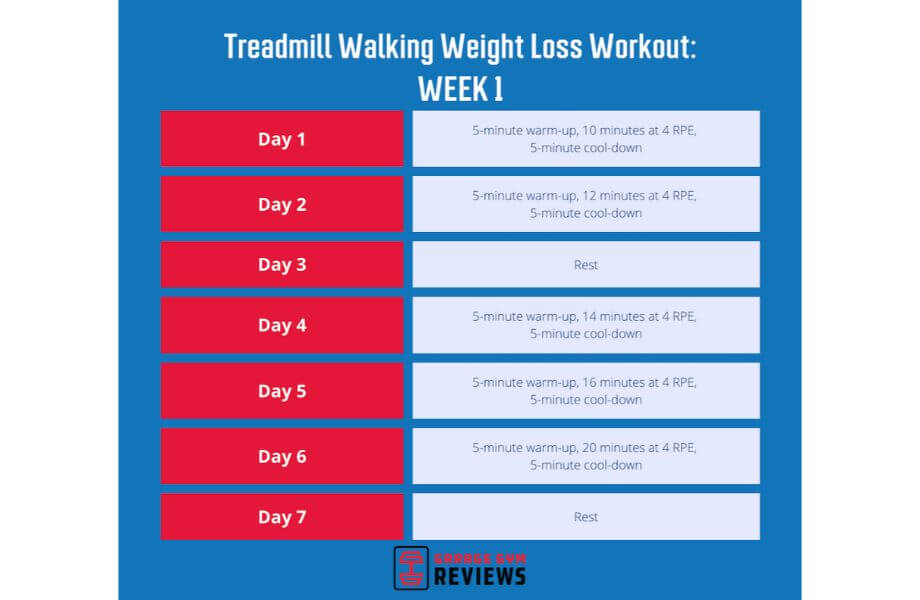
Tracking Progress
Tracking your progress is a valuable tool to assess your weight loss journey and stay motivated. By keeping an eye on your achievements, you can see how far you’ve come and identify areas for improvement.
Using Fitness Apps
Fitness apps can be a great way to track your progress and monitor your treadmill workouts. Many apps provide features such as tracking distance, speed, calories burned, and even heart rate, helping you gain insights into your performance. Additionally, some apps offer workout plans specifically designed for weight loss, which can provide structure and guidance for your treadmill workouts.
Keeping a Workout Log
Alternatively, keeping a workout log can also be an effective way to track your progress. Whether it’s a physical journal or a digital document, recording details such as the duration, speed, and incline level of your treadmill workouts allows you to monitor your improvements over time. It can also help you identify patterns, set goals, and make adjustments to your routine accordingly.
Consultation with a Professional
For personalized advice and recommendations tailored to your specific needs, consulting with a fitness professional or healthcare provider can be invaluable. They can assess your fitness level, health conditions, and weight loss goals to provide guidance and ensure your safety throughout your treadmill workouts.
Seeking Expert Advice
A fitness professional, such as a personal trainer or exercise physiologist, can provide expert advice on the most effective treadmill workouts for weight loss. They can guide you in setting realistic goals, designing workout plans, and monitoring your progress. Additionally, if you have any underlying health conditions or concerns, consulting with a healthcare provider will help ensure that your treadmill workouts are safe and appropriate for your individual circumstances.
Personalized Recommendations
Every individual is unique, and what works for one person may not work for another. By consulting with professionals, you can receive personalized recommendations tailored to your specific needs. This can include guidance on speed, duration, intensity, and even modifications to accommodate any physical limitations or health concerns. Incorporating expert advice into your weight loss journey can maximize the effectiveness of your treadmill workouts and lead to more successful outcomes.
In conclusion, determining the appropriate speed to walk on a treadmill for weight loss requires consideration of various factors, including fitness level, health conditions, and weight loss goals. By incorporating moderate intensity speed, high-intensity interval training, incline walking, and multiple speed techniques, you can enhance the effectiveness of your treadmill workouts. Monitoring your heart rate, preventing injuries, considering personal preferences, tracking progress, and seeking professional advice are additional strategies to ensure a safe, enjoyable, and successful weight loss journey on the treadmill. Happy walking!
